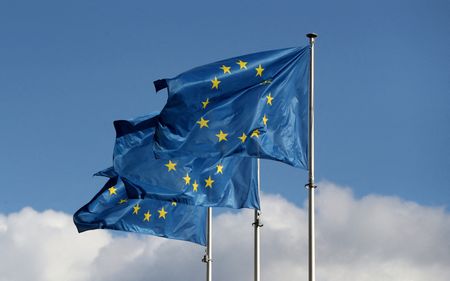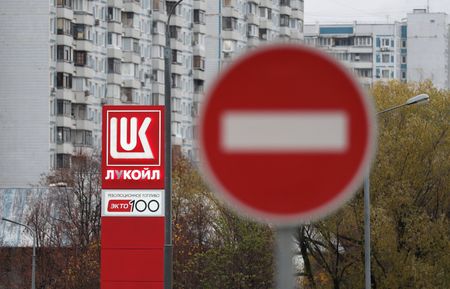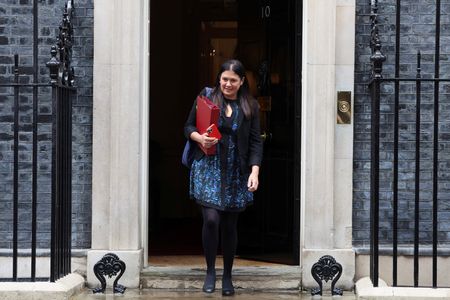By Kate Abnett
BRUSSELS (Reuters) -The European Commission will propose exemptions for “the vast majority” of companies covered by the European Union’s carbon border levy on the grounds that they produce only 1% of emissions in the scheme, a draft proposal showed.
The move, due to be proposed this week as part of a package of measures to cut red tape for businesses, would drastically reduce the 200,000 importers covered by the EU’s carbon border fee, the world’s first such levy.
A draft of the Commission’s proposal, seen by Reuters, outlined plans to change the carbon border levy (known as CBAM) so that it applies only to companies importing goods with a mass-based threshold of 50 metric tons per year.
“A mass-based threshold reflecting the average emissions intensity of the volume of imported CBAM goods would better translate the climate objective of the CBAM,” it said, adding that a threshold set at 50 ton will exempt the vast majority of importers from the levy.
The change would maintain more than 99% of the emissions covered by CBAM, the draft said.
It would replace the existing CBAM rules, under which all individuals or companies importing CBAM-covered goods with a value above 150 euros would have to pay the levy from next year.
From 2026 the policy will impose costs at the EU border on the CO2 emissions embedded in imported steel, aluminium, cement and other goods.
EU Climate Commissioner Wopke Hoekstra said this month that the Commission’s analysis had found that 97% of the emissions covered by the carbon border tariff are produced by 20% of the companies under the scheme.
Most of the exempt importers would be small and medium-sized companies or individual consumers, the draft document said.
The draft proposal could change before publication and any changes to the EU policy would need to be approved by European Parliament and EU member countries.
The EU also plans to simplify some rules for companies complying with CBAM.
For example, the draft outlined plans to make it easier to claim a reduction in CBAM costs for goods imported from a country where manufacturers already pay a CO2 price.
Rather than the company having to calculate the CO2 price paid in that country, the Commission would, from 2027, publish a calculation of annual average carbon prices in other countries.
(Reporting by Kate AbnettEditing by Bart Meijer, Ros Russell and David Goodman)











